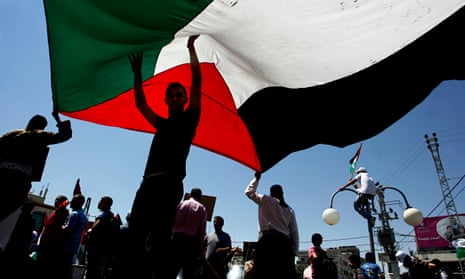Sweden has officially recognised the state of Palestine, the Swedish foreign minister said, less than a month after Stockholm announced its intention to make the controversial move.
“Today the government takes the decision to recognise the state of Palestine,” Margot Wallström said in a statement published in the Dagens Nyheter newspaper on Thursday.
“It is an important step that confirms the Palestinians’ right to self-determination,” the foreign minister said. “We hope that this will show the way for others.”
Sweden’s new prime minister, Stefan Löfven, announced in his inaugural address to parliament in early October that his country would become the first EU member in western Europe to recognise a Palestinian state.
While the Palestinians cheered the move, Israel summoned Sweden’s ambassador to protest and express disappointment.
Israel says the Palestinians can only receive their promised state through direct negotiations and not through other diplomatic channels.
Seven EU member states have already recognised a Palestinian state – Bulgaria, Cyprus, Slovakia, Hungary, Malta, Poland and Romania. Non-EU member Iceland is the only other western European nation to have done so.
The US cautioned Sweden against recognition, calling it “premature” and saying the Palestinian state could only come through a negotiated solution between Israelis and Palestinians.
In Thursday’s announcement, Wallström said: “The government considers that international law criteria for recognition of a Palestinian state have been fulfilled.”
A spokesman for the Palestinian president, Mahmoud Abbas, welcomed Sweden’s decision, describing it as “brave and historic”.
“All countries of the world that are still hesitant to recognise our right to an independent Palestinian state based on 1967 borders, with East Jerusalem as its capital, [should] follow Sweden’s lead,” his spokesman quoted him as saying.
- This article was amended on 9 December 2014. The original included the Czech Republic instead of Slovakia in a list of EU member states that have recognised a Palestinian state. This has been corrected










